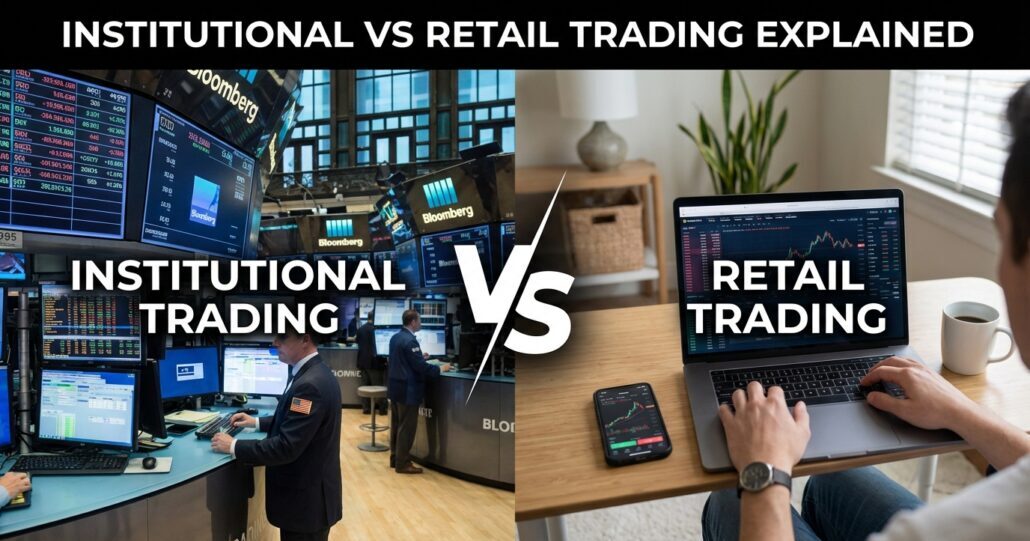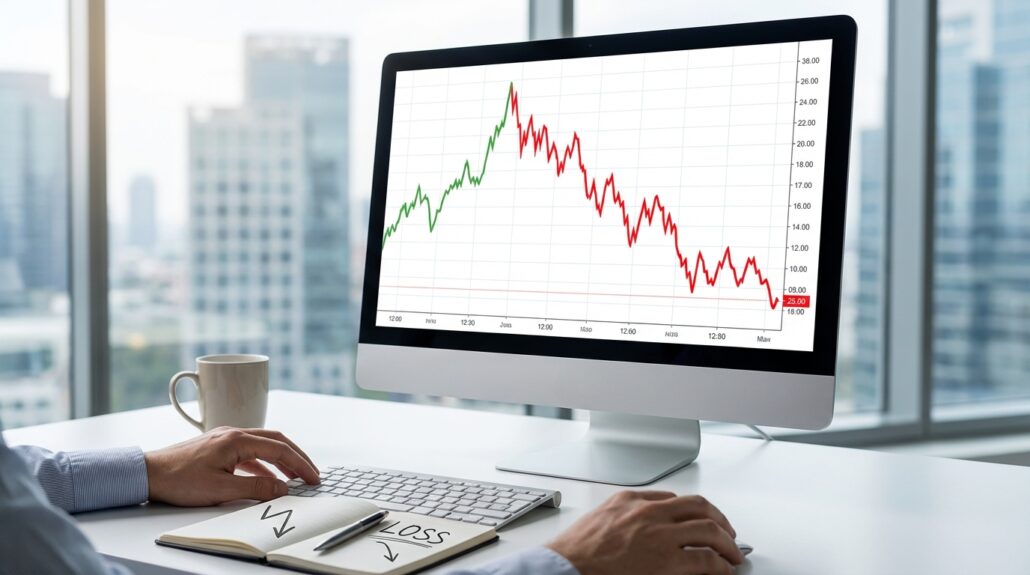Is Plus500 a Safe and Reliable Broker?
 Sam Reid
Staff Writer
Sam Reid
Staff Writer 
Introduction
When evaluating online trading platforms, trust is the single most important factor. With thousands of brokers competing for attention, choosing one that is properly licensed, transparent, and able to protect your funds can make the difference between a positive trading journey and a financial disaster. Plus500 has been operating for well over a decade, is listed on the London Stock Exchange, and is regulated in several major jurisdictions. But what does that mean for everyday traders who want to know whether their money is secure?
This Plus500 broker review brings together regulatory details, platform testing insights, costs, and user-focused features to give a complete picture. We also address some of the missing elements such as education depth and advanced trading tools, because understanding the full landscape is essential before you commit to a broker.
Company Background
Plus500 Ltd was founded in 2008 in Haifa, Israel, and quickly established itself as a pioneer in CFD trading. The broker introduced one of the first Bitcoin CFDs in 2013, a bold move that showcased its willingness to innovate in fast-growing markets. Today, Plus500 operates across more than 50 countries and serves clients through a network of regulated subsidiaries.
Being a publicly traded company on the London Stock Exchange and a member of the FTSE 250 index, Plus500 is subject to strict transparency and disclosure requirements. Investors and regulators alike can scrutinize its financial statements, which is an important signal of credibility in an industry where many brokers remain privately held and opaque.
Regulatory Oversight
Regulation is the cornerstone of broker safety. Plus500 operates under the supervision of multiple top-tier authorities, including:
- Financial Conduct Authority (FCA), UK – Reference number 509909
- Cyprus Securities and Exchange Commission (CySEC) – License 250/14
- Australian Securities and Investments Commission (ASIC) – AFSL #417727
- Financial Markets Authority (FMA), New Zealand – FSP #486026
- Financial Sector Conduct Authority (FSCA), South Africa – FSP #47546
- Estonian Financial Supervision and Resolution Authority (EFSA) – License 4.1-1/18
- Monetary Authority of Singapore (MAS) – License CMS100648
- Seychelles Financial Services Authority (FSA) – License SD039
- Dubai Financial Services Authority (DFSA) – covering operations in the UAE
This global regulatory footprint ensures that Plus500 must comply with strict client fund protection standards, regular audits, and transparent pricing rules. Being licensed by the FCA and ASIC in particular is considered a gold standard for trader protection.
Investor Protection and Fund Security
Clients of Plus500 benefit from various investor compensation schemes depending on their location:
- UK clients are covered by the Financial Services Compensation Scheme (FSCS) up to £85,000.
- EU clients under CySEC are covered by the Investor Compensation Fund up to €20,000.
- Other jurisdictions, such as Singapore or South Africa, do not provide a compensation scheme, but traders are still protected by regulatory requirements like segregated funds and negative balance protection.
Plus500 ensures that client funds are held in segregated bank accounts, separate from company operating capital. This structure reduces the risk of client money being used to cover company expenses or debts.
Additionally, Plus500 provides negative balance protection, ensuring that traders cannot lose more money than they deposit. This safeguard is especially important for beginners who may not yet fully understand the risks associated with leveraged CFDs.
Platform and Trading Experience
WebTrader
The broker’s proprietary WebTrader platform is at the center of the trading experience. It is accessible from any browser, as well as via dedicated mobile apps for iOS and Android. The platform is streamlined for simplicity and ease of use, which makes it attractive to newer traders.
Traders can create watchlists, monitor charts with multiple indicators, set price alerts, and execute trades directly. WebTrader also supports extended-hours trading and has a multiple charts view, which allows up to 25 charts to be displayed at once.
However, advanced traders may be disappointed by the lack of integration with popular platforms like MetaTrader 4 or MetaTrader 5. Plus500 does not support algorithmic trading, Expert Advisors, or third-party add-ons. This makes it less suitable for technically oriented traders who rely on back-testing or automated systems.
Mobile Trading
The mobile app mirrors the desktop experience, providing access to all trading instruments, account management, and funding functions. Real-time quotes, push notifications, and technical analysis tools are included. However, some users note that security features could be enhanced, since access is directly linked to funded accounts.
Range of Tradable Instruments
One of Plus500’s biggest advantages is the breadth of instruments available. The broker offers more than 2,800 CFDs across multiple categories:
- Forex: Major, minor, and exotic pairs
- Indices: Global benchmarks such as the S&P 500 and FTSE 100
- Stocks: Thousands of individual shares from global exchanges
- Commodities: Precious metals, energy, and agricultural products
- ETFs: Covering sectors and themes including crypto-linked funds
- Options CFDs: Cash-settled, allowing speculation on market direction
- Cryptocurrencies: Bitcoin, Ethereum, Litecoin, and more, subject to regulation
The inclusion of options CFDs is particularly noteworthy, as not all CFD brokers provide this product type. It allows traders to speculate on price movements in a way similar to traditional options, without requiring ownership of the underlying asset.
Account Types
Unlike many competitors that offer a wide range of account tiers, Plus500 maintains a single live account type alongside its unlimited demo account.
- Demo account: Provides unlimited practice with virtual funds, replicating real market conditions. Beginners benefit from risk-free training.
- Live account: A straightforward offering with fair conditions across all clients. Traders can adjust their demo account balance to match intended investment sizes, which makes practice more realistic.
- Professional account: Experienced traders who meet certain criteria can apply for professional status, allowing access to higher leverage (up to 1:300). Costs and spreads remain the same.
This simple account structure ensures fairness but may not appeal to those seeking tiered perks or premium services.
Costs and Fees
Plus500 is known for its competitive spreads and transparent cost structure. Key points include:
- Spreads: No commissions are charged, as costs are embedded in the bid-ask spread. Spreads vary by asset and market conditions.
- Overnight funding: Applied to positions held past the daily cutoff.
- Inactivity fee: Charged after three months of no login activity.
- Guaranteed stop orders: Available on certain instruments, but subject to wider spreads.
- Deposit and withdrawal fees: Typically none from Plus500, although payment providers may add charges.
- Currency conversion fee: Applied when trading assets in a currency different from the account’s base.
Funding methods include credit and debit cards, bank transfers, and e-wallets such as PayPal and Skrill. U.S. futures clients can also use Google Pay and Apple Pay.
Risk Management Tools
Managing risk is vital when trading leveraged products. Plus500 offers several features that help traders control exposure:
- Stop loss and take profit orders allow traders to set boundaries on potential outcomes.
- Guaranteed stop loss orders (GSLOs) ensure execution at the requested level, protecting against market gaps.
- Trailing stops automatically adjust to lock in profits as prices move favorably.
- Negative balance protection prevents losses beyond deposited funds.
These tools are valuable for both beginners and experienced traders, though it is important to remember that guaranteed stops come with added costs.
Research and Education
One of the weaker areas in this Plus500 broker review is research and education. While the company offers a Trading Academy, beginner guides, videos, and webinars, the depth of analysis is limited compared to competitors like IG or Saxo.
Unique tools like +Insights and +Me provide sentiment and behavioral analysis of Plus500’s client base. These can help traders understand market trends, popular instruments, and how their activity compares with peers.
However, serious traders looking for fundamental research, analyst reports, or integration with third-party research tools may find the offerings basic. Many professionals supplement Plus500’s resources with external education or analytics platforms.
Customer Support
Support channels include live chat, WhatsApp messaging, and email, with availability across time zones. Response times are generally quick, but there is no phone line for direct voice support. Some traders view this as a drawback, particularly when urgent issues arise.
Despite this limitation, the multi-channel setup still provides timely answers, and FAQs on the website cover many standard queries.
Security Features
In addition to regulation and fund segregation, Plus500 provides the following security layers:
- Two-factor authentication (2FA) during login
- Logout timer to reduce exposure on idle accounts
- Strict KYC and AML procedures to prevent fraudulent activity
- Public listing requirements that enforce disclosure and governance
These protections, along with its regulatory standing, make Plus500 secure for the average retail trader.
Strengths and Limitations
Strengths
- Strong multi-jurisdiction regulation
- Listed on the London Stock Exchange
- Over 2,800 CFD products available
- Competitive spreads with no commissions
- Simple and intuitive WebTrader platform
- Unlimited demo account and fair account conditions
- Risk management tools like GSLOs and negative balance protection
Limitations
- Limited education and research materials
- No MT4, MT5, or third-party integrations
- No algorithmic or automated trading
- Customer support lacks telephone option
- Risky for beginners due to high leverage products
Conclusion
So, is Plus500 a safe and reliable broker? Based on regulation, transparency as a publicly listed firm, investor protection measures, and a long industry track record, the answer is yes. Plus500 offers a secure trading environment backed by multiple top-tier regulators, clear fee structures, and client protections like negative balance safeguards.
That said, traders should be aware of its limitations. The platform is best suited for those who value simplicity, low costs, and a broad range of CFDs. Those seeking advanced charting, automation, or extensive education may want to use supplementary tools alongside Plus500.
Ultimately, Plus500 is a credible choice for retail traders who understand the risks of leveraged CFD trading and who prioritize regulation and transparency in their broker selection.
FAQs
Is Plus500 legal in the UAE?
Yes. Plus500 is regulated by the Dubai Financial Services Authority (DFSA), which allows it to operate legally in the United Arab Emirates.
Can you withdraw money from Plus500?
Yes. Withdrawals can be made via cards, bank transfers, and e-wallets. Most requests are processed within 24 hours, though bank transfers may take a few business days. Plus500 does not usually charge fees for withdrawals, though your payment provider may.
Is Plus500 secure?
Yes. Plus500 is regulated by top-tier authorities like the FCA and ASIC, maintains segregated client funds, offers negative balance protection, and complies with strict disclosure rules as a public company.
Disclaimer: This information is not investment advice and is only for educational purposes. Remember that forex and CFD trading involves high risk. Always do your own research and never invest what you cannot afford to lose.
 09th Sep 2025
09th Sep 2025








